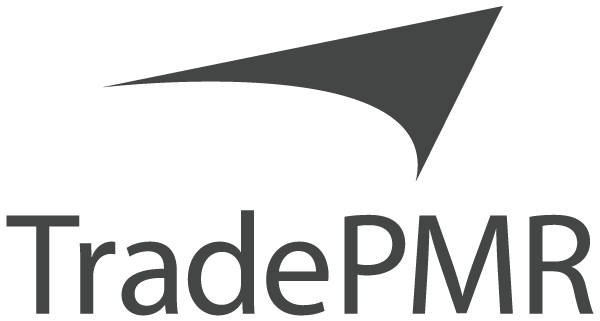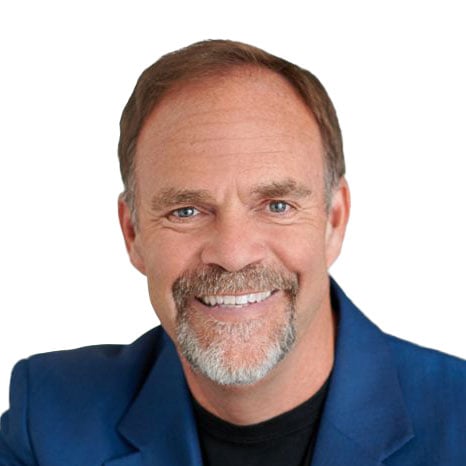I have a huge problem: I’m easily fascinated.
When I go to a conference, I attend everything I can. I arrive early. I stay late. Even if I’m just speaking. Especially if I’m “just” speaking.
In 2015, I was invited to deliver a keynote address at a major insurance sales conference in Las Vegas. After my presentation, I stayed around to learn, observe the culture, and maybe even steal some of the new ideas. I like to make these things count.
Towards the end of the event, I found myself sitting at one of those big sales award dinners that most people in business have probably been to a million times. We were seated in groups of ten. There was a pre-plated cheesecake and salad and dinner rolls that were as hard as rocks, with butter that was harder than the dinner roll.
People were getting lots of stuff. Plaques. Glass things. Whatever you got as an award for your success.
But what really caught my attention was the salesperson of the year award. It was one of those oversized checks, with a really big number on it, like something that Tiger Woods would get at the end of a tournament.
I turned to the guy next to me and asked, “What did she do to win that?”
He looked at me, sort of incredulously (he didn’t know who I was). He eventually said, “Well, she sold more than anyone else in the company.”
I said, “Yeah, I figured that part out. But how did she do that?”
He said, “I don’t know.”
I looked at the guy next to him, and he didn’t know. I went around the whole table, asking the same question.
No one knew.
No one knew how the most successful person in the company was so good at what she was doing—and no one seemed to care!

During my flight back to Austin, Texas, I sketched out the idea for my book.
The premise was simple: I wanted to ask any and every million-dollar-producer I could find, “What do you do?” It didn’t matter whether they sold Ferraris, homes, robotic surgery equipment, pharmaceuticals, or financial services. I wanted to know what patterns of behavior they had in common.
How were these people achieving success? What were they doing?
I started interviewing successful producers, which is harder than it sounds. The problem with trying to interview salespeople is that they eat what they kill. Spending time with me was taking time away from their sales.
But many of the people I reached out to, including the woman from that conference who got the big check, were incredibly gracious with their time. They let me follow them around all day, sometimes riding in the car with them, while they made sales calls.
By the time I was done, I had collected around 175 interviews across seven different industries. It was a massive amount of data, all delivered in the form of stories.
The result was 21 Secrets of Million Dollar-Sellers: America’s Top Earners Reveal the Keys to Sales Success.
One of the superpowers shared by most of the people I interviewed is that they are compulsive about writing things down. Absolutely compulsive about it.
It makes sense, because every human is gifted with the ability to be creative, right? But what happens to 90% of people is that they have an idea—and then they have dinner.
There goes the idea. It’s gone; they can’t remember it. The brain is the great tool of idea development, but it is miserable at storing ideas.
I won’t let my ideas slip away. If I hadn’t sketched out a plan for my book on that flight back to Austin, 21 Secrets may have never been written. Writing it down led to me hiring an agent, an editor, a literary attorney, and drafting a book plan, or treatment, that sparked a bidding war between publishers. 21 Secrets is now an audiobook, has been translated into nine languages, and is in its second printing.
None of that success would have been possible if I hadn’t written down the idea.
It’s amazing to me that a good financial advisor doesn’t have a line of 50 people waiting in front of their office, every damn day.
I’m shocked for a simple reason: most humans don’t know what to do with money. Even some of the people I interviewed.
Let's say someone is at the top of their game. They might be the top producer of chlorine in the world, for example. They know everything there is to know about chlorine. They know its chemical bond elements and how it can be used for swimming pools and cleaning sausage-making machinery and everything in between. They’re bringing home massive amounts of money. But they still might not have a firm understanding of what to do with it – unless the money was straight chlorine.
Managing money is not most people’s expertise. Most people need help.
If you don’t have a sense of financial security and good health, then none of your other expertise matters. You’re done. There’s nothing more important.
But those two things—financial security and good health—occur in the future. A financial advisor can only help you with what you’re doing tomorrow. They can’t help you with yesterday.
The financial services business is a tomorrow business. It’s a massive challenge.
Fortunately, advisors can help themselves. In conducting research for 21 Secrets, I interviewed upwards of 80 people in financial services. After talking with them, I concluded that there are three keys for building a career: experience, knowledge, and skills.
Experience can’t be taught, but knowledge and skills can.
Advisors can work on their active listening. They can simplify their messaging, so that it has a bigger impact on their clients.
They can be better storytellers. Stories have been a strategy for humankind for 60,000 years. You could say it’s the oldest of sales strategies and it’s a strategy that successful producers still use today.
It’s critically important to have the right story at the right time, and advisors can build theirs by answering three questions. “What value do you bring?”
“How are you different?”
And, finally, the same question that drove my 21 Secrets book: “What do you do?”
Top performers – whether they’re in financial services, chlorine sales, or writing books – can give you a good answer.
Creative Ventures and its employees are not affiliated with TradePMR. No compensation was paid to the author for this article. This article reflects this the author's experience. Your experience may vary.

